New topics in Chinese literature after the end of the cultural revolution.
(Roberta Barazza)
In this essay I described some examples of changes in Chinese society after the end of the cultural revolution, and how they were mirrored in Chinese literature. In 1976, after Mao’s death and the arrest of the Gang of Four, a lot changes in society and politics and, correspondently, in literature. Some tales written between 1976 and 1985 reveal examples of this development. What could not be said or written before, can now timidly be suggested. If during Mao’s time writers could just praise the virtues of communism, New Realism gives way to the first attempt to describe also what is negative, like poverty, injustice, abuses of power. And love, which was considered before just as an aspect of a citizen’s political commitment, now emerges as an end in itself.
The end of the Cultural Revolution is for China a total turning point. From 1966 to 1976 the Cultural Revolution, planned by Mao Tse Dong, hugely limited the freedom of speech and action. The official aim was the realization of the socialist ideal, but it soon changed into the glorification and defence of the personal power of the Chinese leaders1.
Mao founded the Communist Republic of China in 1949. In 1966 the Cultural Revolution began, and went on officially till 1969, but in practise till Mao’s death, in 1976.
After Mao’s death and the arrest of the Gang of Four, a new epoch began for China and, at first, a timid possibility of change and freedom seemed to be possible.
In 1979 the new leader Deng Xiao Ping pronounced a famous speech in which he praised the idea of improving one’s economical conditions and of getting rich, while previously the only ’moral’ acceptable activity was to work for the collective wealth, neglecting personal wishes and aspirations.
This big change, which later led China to a rapid development, mirrored itself also in the cultural and literary production.
In this short essay I’d like to write about some new aspects of the literary production which could not have been thinkable previously, due to the different political situation. More frequent examples are taken from the literature of New Realism.
It is possible to perceive important changes in society after 1976 reading short stories and novels.
An interesting source for this information is The Chinese Western. Short Fiction from Today’s China2, published in 1988 and dealing with China of the 70s.
The tales deal with episodes happened in the Western part of China, which was, and still is, the least developed part of the country. This area was the farthest from the central power and the least controlled.
It was an important economical area during the years of the Silk Road, but when, after 1400-1500, travels by sea from Europe became more frequent than along the Silk Road, it became marginal and a bit abandoned by the central political power. Also during the Cultural Revolution, the western citizens could sometimes avoid the rigid control of the capital city.
Western China created a new literary and film genre, the Western. The name is the same as the US Western genre.
The main aspect of the Chinese Western hero is his/her challenge to the rules of the political power and bureaucracy.
This area is populated by several ethnic minorities, and it is the favourite dwelling place for outcasts and outlaws, where outlaws often means simply people who are victims of political injustice. The western hero is one loved by people, a sort of Robin Hood who does not fear to challenge authorities if he considers them unjust.
The tales of the Chinese Western are not descriptions of audacious changes in people’s lives, but rather of timid attempts to change rules, or to refuse what is felt as un unnecessary wrong imposition.
The tales often express the contradictions of people, torn between their faithfulness to tradition and their obedience to the establishment and their wish to change.
So, for example, some characters do not understand why they have to submit to bureaucratic rules and think that what matters is to resolve a factual situation; if you do nothing wrong why should you care for pieces of papers and official certificates?
Another expression of the new changing sensibility is when a heroine refuses to accept male rules and feudal ideology if they prevent her from living with the man she loves.
Another example is the one of a student who does not question the rules to climb the social ladder but he feels frustrated by the rigid bureaucracy which does not always reward merit.
In 1942 Mao Zedong published his ‘Talks on Art and Literature’ where he dictates what good literature and art should be.
Literature must express the optimistic, revolutionary commitment of workers, peasants and soldiers working for the socialist society. Literature and art must be used for the purposes of the political party.
The model is the Russian proletarian literature based on Stalin’s socialist realism. Literary works had to glorify the communist doctrine and to present a society forever enthusiastic of serving the communist ideals.
The belief that art and literature’s first aim was to glorify communism, began to be shaken by the literary movement of New Realism some years before the end of the Cultural Revolution.
New Realism’s date of birth is 1956-7. Its basic ideas were that Communism was not so perfect as writers and artists were obliged to say in their works, and that Chinese society showed many contradictions which it was no longer possible to hide. In particular bureaucracy, corruption and abuses of power by the leadership and by the local representatives of power were big problems for the Chinese population and it was right to deal with them in the works of art.3
The first ideas of New Realism appeared in the last years of the Cultural Revolution, but the movement could express its opinions and publish more freely only around 1979, after the more democratic political plans of Deng Xiaoping.
The writers of New Realism want to talk about the problems of Chinese society, the poverty in the country, the oppression of people under the privileged class, the degradation of many, due to the difficult conditions of life. The heroes of the New Realist novels and tales are the oppressed.
The protagonists of this new literature are very different from those of the past: they are no longer happy supporters of the communist ideals but poor people, victims of a system which often unjustly destroys its citizens.
The writers still felt faithful to the communist party and to their political identity but they wanted to feel free to speak about the negative aspects and to defend the victims of the system.
New Realism is not only important in the literary field. It was important also for the reaction it aroused in China and abroad. Abroad people did not want to believe that Chinese communism was not what it had always been presented. And in China at first these ideas were refused and censored, but later accepted, and the awareness of an unsatisfactory political and social situation increased.
New Realist writers published both in China and in Taiwan. Quantitatively it was richer in China, but the quality of the books written in Taiwan was better, at least in the first period.
Sometimes creativity increases deeply at the end of a bad historical time. And this was maybe the case in China. The prospect of more freedom in a near-by future seemed possible and this encouraged creativity and dynamism. But it did not last long. In 1957 these new concepts were repressed and again Chinese literature was reduced to silence.
A new revival took place in 1976 when Mao died and the Gang of Four was arrested. It is true that most of the leading class was then reinstated, but people already believed in a big change.
In 1977 the movement of the ’Literature of the Wounded’ began. The ’wounded’ are those who suffered for the injustices of the communist system: the victims of abuses of power, peasants, women who cannot choose the life they have right to, frustrated intellectuals.
What is felt as the worst problem in China was bureaucracy, a system based on prerogatives, special favours, bribery, considered a hindrance to China’s modernization.4
New Realists aim at speaking not only of the communist ideal - which they do not refuse at all - but also of the real conditions of life of Chinese people. They refuse to blindly praise society. They feel the duty to expose social contradictions, political inequity and injustice. The leadership is now often portrayed as insensitive to the needs of people, unconcerned with their personal problems and just interested in personal privileges and power.
The absolute exercise of privileges at the expense of poor people is a common theme in New Realism and it gives a sense of degradation of society. The military class is portrayed as morally corrupt.
These themes are new. Never before leadership, military class and politicians had been depicted in such negative terms. Nor had writers dealt with peasants and poor people, considered for the economical and social problems they revealed.
I read some tales, taken from Chinese literary reviews.
One is ‘In the Archives of Society’ (a film scenario), by Wand Jing. 5
The protagonist is a young Chinese girl who wanted to enter the Liberation Army after finishing school. And she did. But she realized that what she was requested to do was not rewarding and often felt humiliated. She also decided to marry a medical doctor and she did, but she was soon refused, her husband having realized that she had had a previous relationship. Abandoned by her husband, she degraded herself, till she became the involuntary murder of the boy she had loved before her marriage. The police inspector understood that the girl was guilty, but also a victim of a society which punished her unjustly. For this reason he decided to help her avoid serious accusations. But he was condemned for this.
The story seemed to describe a changing society. The girl still idealized the Liberation Army and the communist plan. On the other hand, she felt partially betrayed by this political ideal: in the army she was not treated with respect and felt humiliated by the leaders. In her personal life she realized how many disadvantages a woman could suffer, and how male chauvinistic prejudices could ruin women’s lives. On the other hand, the police inspector, who tried somehow to reject social laws because he realized that an objective criminal is sometimes him/herself a victim of society. The inspector may represent the attempt of a change in such an unjust society, but he is arrested, meaning that change can be possible, but many obstacles will slow down the process.
Another tale I read is ’The Eye of Night’, by Wang Meng. 6
It is the story of a man travelling to a big town from the country where he lived. He is going to town invited by a ‘friend’ who told him he could help him find a work and earn money. Many people in the village knew Comrade X, who had settled down in town many years before. And they trusted him.
Chen Gao, the protagonist, is going to Comrade X’s house. He is on a bus at night. He listens to people speaking of democracy and he thinks that they can speak of democracy because they do not need to worry about money to earn. They also speak of the Gang of Four’s arrest. Chen Gao is a writer: he published some tales. He observes people. Much has changed since he came here years ago. He arrives at Comrade X’s address. A young boy opens the door. He is unkind; he listens to unpleasant noisy music. When he at last decides to let Chen Gao in, Chen Gao explains that he has come from the village because Comrade X told him that he would have helped him with a job. But the young boy treats him with contempt and he asks him what he can give in return. He can sell mutton, but the boy laughs at this. Chen Gao leaves.
In this tale there are references to the change in China soon after the Cultural Revolution. Chen Gao is still the idealist communist who believes in solidarity and friendship. He notices that in nowadays society money and commerce are what matters most.
When he observes the bus driver, he notices his paleness and suffering.
There seems to be a generation gap. The boy seems not to give importance to what has always been important for Chen Gao, his values, his sense of dignity, his culture. He listens to horrible music, he hardly cares what Chen Gao says, he has no respect for him, he is just interested in money.
Another topic in the tale is the contrast between country and town: the great poverty in the country and the relative ease in town.
There are strong differences between generations and between social strata as well. And China is changing. As any change, it seems to undermine past values (solidarity, comradeship); at the same time it seems that what was accepted in the past actually hid many negative aspects (poor peasants; pale, sad and tired bus drivers, unemployment), which the change may hopefully improve.
Another reading is ‘Five Letters - The First Letter‘, by Bay Hua.7
This letter is written by Yanan in 1978. She is a girl belonging to the ruling class. Her father is a General of the Army. In the first letter she meets her mother and they speak about Dad, their family and the boy courting Yanan.
The main topic in the letter is the generation gap. The girl says that she has the impression of having covered an incredibly long metaphorical distance, while coming back home.
She visits her parents and she can hardly recognize them. Speaking about her boyfriend, her mother says that he is not a good match for her, since he will never belong to the high leadership. Her mother defines people with the name of their cars. Shanghai is a friend who owns a Shanghai car. Yanan is surprised at this.
In her father’s study she sees Marxist-Leninist books, but nothing about personal stories, feelings, love. She says that all the men of his generation are like this.
She sleeps in an unquiet way and she suddenly wakes up, shocked by a nightmare: she dreamt of her mother pointing to people and calling her with cars’ names.
This tale is very meaningful if we deal with changes in Chinese society. The tale seems to be set in Miami, rather than in traditional China: the characters speak about rich cars, money, holiday, rich managers.
The generation gap is clear. Her father seems to belong to old Communist China, given his readings, but, at the same time, he is described as a modern manager, tanned after a holiday, and dressed smartly. Her mother seems still more to belong to the capitalistic leading class and instead of caring about people’s personalities, she is interested in their cars and richness. And Yanan seems getting lost in this distance from her parents, and instead of talking to her parents, she turns to the paper and writes letters to her friends.
The themes of love and personal relationships become important after the end of the Cultural Revolution. It is the most important topic rediscovered after Mao’s time. 8
Soon after 1976 love is treated in a prescriptive way, that is, writers express their thoughts and opinions about love, rather than personal experience. Later it becomes more descriptive, that is described with more practical situations and concrete problems.
It is often treated as a social situation, that is writers seem willing to show how love changes in the new Chinese society.
In the previous ten years love had been almost completely unmentioned in literature.
In 1978 the first love story after Mao’s dark age, by Liu Xinwu, appeared. It seemed more a critical essay than a tale. The author was so appreciated that he began to receive hundreds and hundreds of letters written by the readers. At last people could read and speak about love.
The idea of love as an aspect of one’s commitment to socialism was commonly accepted after 1942 and still dominated many stories of the 70s. The political meaning had always been emphasized in any aspect of personal life. For ex., it was common to consider a character negative or positive according to his/her political position. If a woman divorced from a communist husband and she married a less politically committed communist worker, she was presented as one person falling down a process of degradation.
But in love stories, after 1976, new ideas and situations emerge. In ‘Chinese Roses’ by Li Tuo, written in 1978, a wife still admires her husband’s political commitment, but at the same time she begins to doubt that his total devotion to the communist society may be negative for their private life. She feels guilty for these ideas, but at the same time she feels uncomfortable for her husband’s carelessness of their family life.
Such doubts could not have been written during the cultural revolution.
In 1978 the definition of love as a relationship linking two persons to the common communist project, would no longer have been considered sufficient.
And if, in the past, the most important virtue for a girl was her hard-working, now beauty and attractiveness are given importance, too. Love begins to be considered as an end in itself.
According to Kam Louie9, love becomes an important theme for books and tales after 1976. The theme is used for commercial purposes like in western societies; except for sex, which is still left out, more than in western societies. In the 90s, despite of many broken taboos, sex remains a topic which is rarely elaborated. The Confucian viewpoint of abhorrence of sex continues to influence common sensitivity.
A new idea of love, a sense of injustice, a more critical view of communism, a generation gap: these are some new aspects of Chinese society in the first decade after Mao’s death, and these are also some new themes dealt with in these years’ literature
Footnotes:
1.http://en.wikipedia.org/wiki/Cultural_Revolution#The_Cultural_Revolution
2. The Chinese Western. Short Fiction from Today‘s China, Ballantine Books, New York, 1988, VII.
3. The New Realism. Writings from China after the Cultural Revolution, edited by Lee Yee, Hippocrene Books, New York, 1983, p.3-4.
4.The New Realism. Writings from China after the Cultural Revolution, edited by Lee Yee, Hippocrene Books, New York, 1983, p.7.
5. The New Realism. Writings from China after the Cultural Revolution, edited by Lee Yee, Hippocrene Books, New York, 1983, p.102.
6. The New Realism. Writings from China after the Cultural Revolution, edited by Lee Yee, Hippocrene Books, New York, 1983, p.92.
7.The New Realism. Writings from China after the Cultural Revolution, edited by Lee Yee, Hippocrene Books, New York, 1983, p.323.
8. Jeffrey C. Kinkley (editor), After Mao: Chinese Literature and Society. 1978-1981, Harvard University Press, Cambridge MA, 1985, p.64.
Bibliography
www.wikipedia.com
The Chinese Western. Short Fiction from Today‘s China, Ballantine Books, New York, 1988.
The New Realism. Writings from China after the Cultural Revolution, edited by Lee Yee, Hippocrene Books, New York, 1983.
Jeffrey C. Kinkley (editor), After Mao: Chinese Literature and Society. 1978-1981, Harvard University Press, Cambridge MA, 1985.
Personal blog in English. If you want to leave a comment, write to barazza.roberta@gmail.com
About Me
ruins
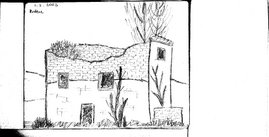
country house
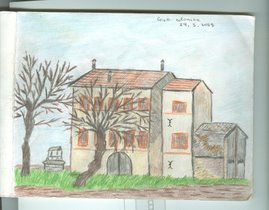
novi mesto (slovenia). commercial center
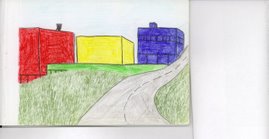
warsaw. iceskating little rabbit
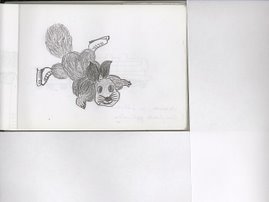
viterbo (italy). shop
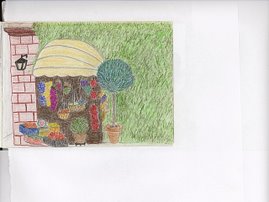
udine. helicopter
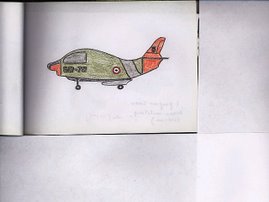
udine. tractor
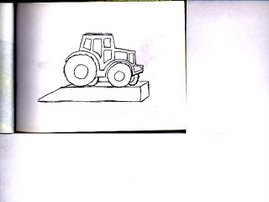
motovun (croatia)
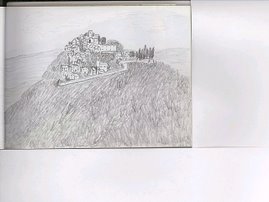
krasica (croatia)
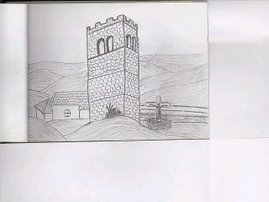
church in slovenia
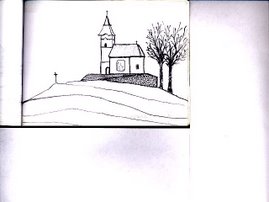
slovenia
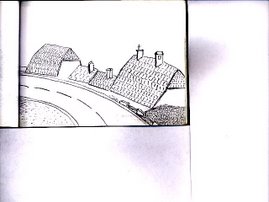
armour
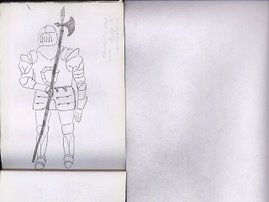
rome. palm tree

dog carrying a newspaper
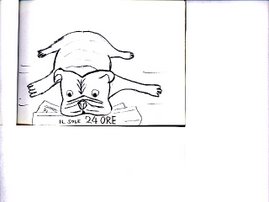
rome. campo dei fiori. giordano bruno's statue
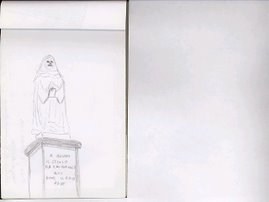
rome. Palazzo Venezia
